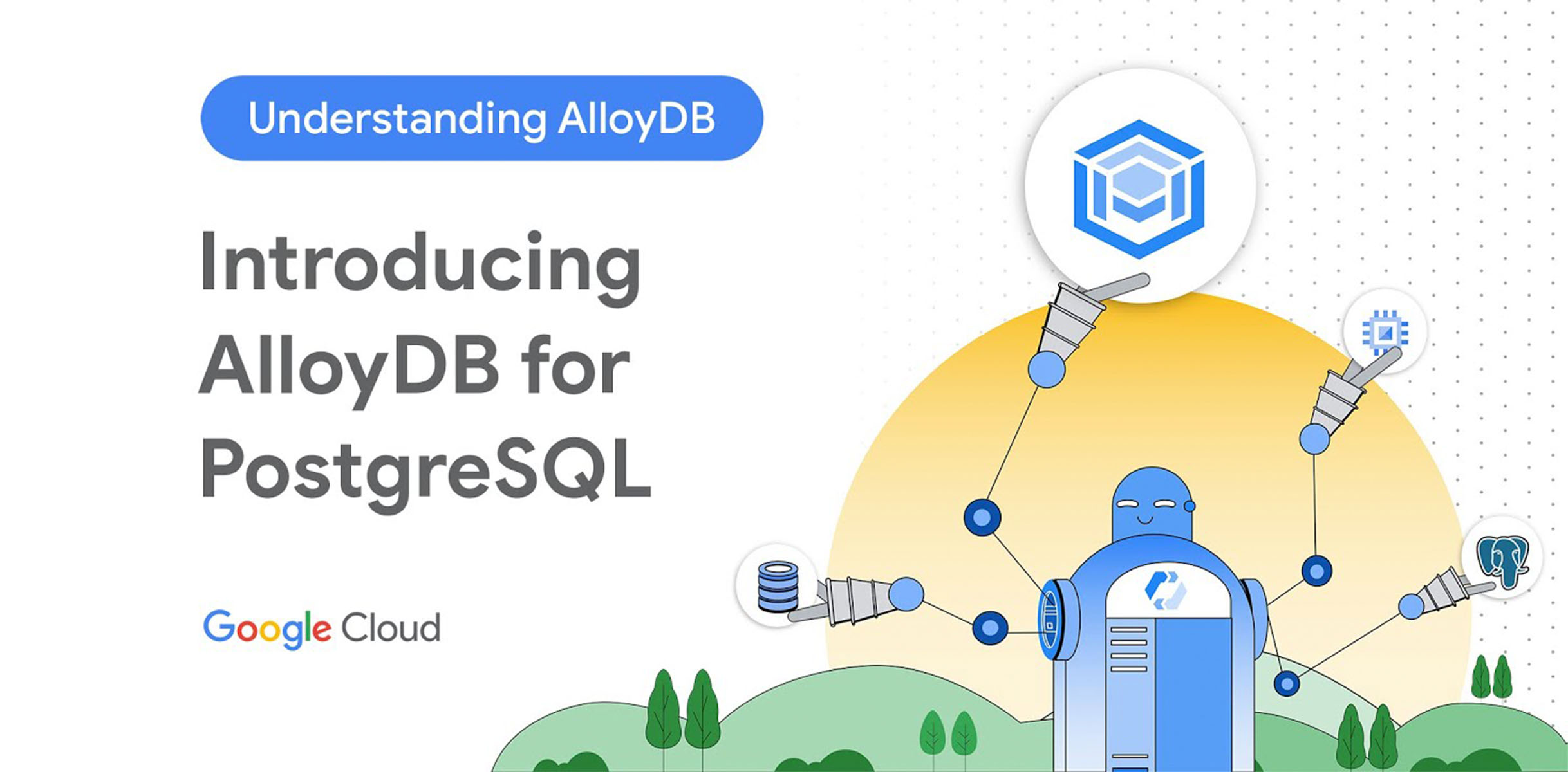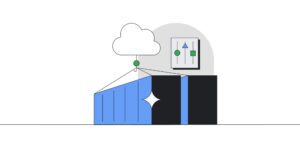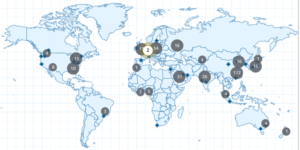
[ad_1]
Probably the most important benefits of operating databases within the cloud is the flexibility to make sure enterprise continuity. In a database context, it’s frequent to outline continuity as a mixture of database availability and knowledge sturdiness.
AlloyDB is a fully-managed, PostgreSQL-compatible database for demanding transactional workloads. AlloyDB employs rigorous enterprise continuity and knowledge resilience practices by default. This implies you possibly can profit from options like automated failover, point-in-time restoration, and knowledge replication with out having to fret about advanced and time-consuming configurations and administration.
At Google Cloud, we perceive the significance of enterprise continuity, which is why we now have designed our infrastructure and managed providers to deal with many fault circumstances which are most dreaded in self-managed deployments. By default, our structure and infrastructure present strong safety towards knowledge loss and unavailability occasions, which implies you can have peace of thoughts realizing that your knowledge is all the time protected and accessible. On the similar time, as a result of totally different purposes have totally different availability wants, we try to offer flexibility and controls to you so to meet your personal service stage goals.
Specifically, AlloyDB is constructed on prime of Google Cloud’s extremely obtainable and dependable infrastructure, which implies it may possibly present excessive database availability and sturdiness. With AlloyDB, you possibly can be certain that your knowledge is out there and you can get better from any disruptions shortly and effectively.
Unavailability and knowledge loss occasions
Mission crucial enterprise purposes require all the time obtainable and resilient databases and their knowledge to be sturdy. Let’s dive deeper into these phrases and perceive which unavailability and knowledge loss occasions they relate to.
Availability is the flexibility for end-users or purposes to entry the database and carry out knowledge administration operations. Utility availability is often depending on database availability. When the database is down, customers might not be capable of login, see your product catalog, place orders or obtain related provides.
A few of the most salient unavailability occasions are infrastructure failures. These could be as minor as a single hardware element failing, to extra generalized occasions, akin to energy outages or disasters that may take down a complete knowledge heart or a set of knowledge facilities in a area. Utility errors may render database techniques unavailable. For instance, a poorly written question can hold a complete desk in a lock for prolonged durations, or errors in configuration may cause unavailability of the database server.
Sturdiness is the flexibility to retain knowledge with out corruption till it’s retrieved and is an integral attribute of any database. Much like unavailability occasions, sure infrastructure failures, like a disk failure, may result in knowledge loss occasions. Nevertheless, essentially the most dreaded knowledge loss occasions embody person and utility errors, akin to unintentional deletion of tables, or an utility corrupting information earlier than making them persistent in a database.
Resilience is the flexibility of a system to get better from failures it experiences and restore regular operations, and goes hand in hand with availability and sturdiness. Extremely obtainable and extremely sturdy techniques are constructed by introducing redundancy and fault tolerance, thereby defending the customers towards failure occasions.
Let’s see how Google applied sciences and the AlloyDB structure can help you obtain excessive ranges of availability and sturdiness.
Resilient by design
AlloyDB’s structure leverages Google’s foundational storage system, Colossus. Colossus is without doubt one of the key constructing blocks of planet-scale, mission-critical providers akin to Google Search and Gmail. It’s a distributed file system designed to be infinitely scalable and extremely fault-tolerant. Two methods underpin its fault tolerance: redundancy and erasure coding.
The redundancy method utilized in Colossus entails splitting knowledge into smaller chunks and copying them onto a number of servers in unbiased failure domains. This strategy ensures that any copy that’s impacted by an unavailability occasion, akin to a community partition, or a knowledge loss occasion, akin to a disk failure, could be reconstructed from the remaining copies. Erasure coding is a method that introduces extra knowledge redundancy throughout the chunks, permitting regeneration of lacking or corrupted knowledge from the recognized blocks throughout the similar chunk.
Past leveraging Colossus, AlloyDB’s clever storage service introduces extra fault tolerance. Information is saved redundantly in a number of zones for tolerance to zonal failures. Our storage additionally displays outages in any of its zonal copies, offering the flexibility to reconstruct them to take care of its excessive availability. This implies you can be assured that your knowledge will likely be protected and all the time obtainable, even within the face of catastrophic failure.
AlloyDB additionally makes use of Google’s Digital Machine (VM) designs, which assist stay migration in any of the underlying VMs, together with your database situations, to your AlloyDB clusters. Stay migration lets Google Cloud carry out upkeep with out interrupting a workload, rebooting a VM, or modifying any of the VM’s properties, akin to IP addresses, metadata, block storage knowledge, utility state, and community settings. This enables AlloyDB to take care of its availability throughout infrastructure upkeep, safety and configuration patching, and even hardware failures.
Add-on options to extend availability and sturdiness
Whereas AlloyDB’s constructing blocks mentioned above already supply a excessive stage of resilience, your mission crucial purposes can profit from extra AlloyDB options that improve availability and sturdiness.
Excessive availability situations
AlloyDB provides excessive availability situations with an industry-leading 99.99% availability SLA, inclusive of upkeep. Major situations are extremely obtainable by default, and skim swimming pools with two or extra nodes are additionally extremely obtainable.
A key characteristic of AlloyDB’s excessive availability situations is automated failovers. AlloyDB mechanically detects unhealthy PostgreSQL situations and fails over to standby machines in numerous zones inside 60 seconds, unbiased of the database dimension and cargo. This ensures that your utility experiences minimal disruption throughout unavailability occasions.
AlloyDB’s excessive availability situations additionally assist non-disruptive upkeep operations for user-driven upkeep operations, akin to occasion resizing, reconfigurations that require restarts, and repair pushed upkeep operations, like minor PostgreSQL model upgrades. In preparation for these upkeep occasions, we put together your new occasion, and heat up its caches earlier than changing the present occasion with the brand new occasion. Upkeep occasions are accomplished with lower than 10 seconds of disruption on the first occasion whereas the learn swimming pools stay totally operational throughout upkeep.
Below the hood, AlloyDB’s excessive availability situations make use of the identical battle-tested Google Cloud providers that we provide to our prospects for constructing extremely obtainable purposes. Regional Inner Load Balancers route connections seamlessly between machines, guaranteeing that your utility is all the time linked to a wholesome occasion. Managed Occasion Teams instantiate alternative machines quickly, and Spanner persists occasion configurations, making upkeep and scale-out operations quick and dependable.
Cross-region replication
Though simultaneous failures of a number of knowledge facilities in the identical cloud area are vanishingly uncommon (sometimes requiring disastrous occasions akin to fires or earthquakes), AlloyDB adheres to the precept of planning for all attainable failure eventualities — even for uncommon however large-scale occasions.
Cross-region replication lets you replicate your knowledge asynchronously out of your main cluster right into a secondary cluster in one other cloud area. In case of a main cluster failure or outage, you possibly can shortly promote the secondary cluster to change into the brand new main cluster, permitting your utility to proceed operating with minimal disruption.
The cross-region replication characteristic operates asynchronously, which implies that it does not influence the write efficiency of your main cluster. The secondary cluster receives updates in near-real-time, and you’ll monitor the lag.
Backups and point-in-time restoration
Information loss could be a main setback for companies, which is why AlloyDB provides strong backup and point-in-time restoration capabilities to guard your precious knowledge. You’ll be able to take handbook, automated or steady backups of your AlloyDB clusters to guard your knowledge towards knowledge loss occasions.
Backups are offloaded to AlloyDB’s aforementioned clever storage service, which permits backup operations to proceed with none influence on the learn or write efficiency of situations connected to the cluster. The sharded nature of the storage system permits parallel processing of taking and restoring backups, which accelerates backup and restoration instances considerably.
Backups are saved in Cloud Storage, separate from the cluster storage, and luxuriate in a number of the highest sturdiness in enterprise storage techniques, with 99.999999999% (11 9s) annual sturdiness. Which means that a typical database with each day backups might run for a whole bunch of 1000’s of years with out experiencing corruption – so in case your backups begin exhibiting issues simply after 10,000 years, give us a name! Backups are additionally unbiased from cluster lifecycle, providing safety towards unintentional cluster deletions.
AlloyDB provides automated backups for handy scheduling and retention of backups. Wealthy customization parameters permit tailoring this characteristic to your group’s particular wants, taking backups as steadily as every hour to as seldom as as soon as every week, retaining primarily based on a time interval as much as a 12 months or by a depend, and the flexibility to make use of any Buyer Managed Encrypted Key (CMEK) or Google’s default encryption.
Earlier this month, we introduced the final availability of steady backup and restoration for AlloyDB, which offers point-in-time restoration functionality inside its restoration window, for as much as 35 days. Use circumstances embody restoring simply previous to an error that triggered corruption within the knowledge or to a particular date and time for auditing or for check and improvement functions. Steady backup and restoration combines a each day backup plan and steady saving of transaction logs. By default, all main clusters have a steady backup plan with 14 days of restoration window to make sure your knowledge is protected.
Much like backups, steady backup and restoration can also be managed by AlloyDB’s clever storage system, which implies it doesn’t influence occasion efficiency and achieves sooner point-in-time restoration in comparison with conventional point-in-time restoration of PostgreSQL (as a consequence of its capability to parallelize replay). Transaction logs are offloaded to Cloud Storage, not impacting your database’s cluster storage.
Steady backup and restoration is priced by the storage utilized by the transaction logs and backups. The primary seven days of log storage are offered at no extra value.
Construct extremely resilient purposes with AlloyDB
We perceive how essential excessive availability and knowledge sturdiness are for your small business. Google Cloud’s infrastructure and managed providers present a powerful basis for guaranteeing enterprise continuity, and AlloyDB builds upon this basis with its clever storage service and extra options to extend availability and sturdiness. By leveraging these options, you possibly can have peace of thoughts realizing that your mission-critical purposes and knowledge ought to be obtainable, even within the face of infrastructure failures, knowledge loss occasions, and different disruptions.
Construct your utility at this time on AlloyDB. New prospects can attempt AlloyDB free of charge.
[ad_2]
Source link





